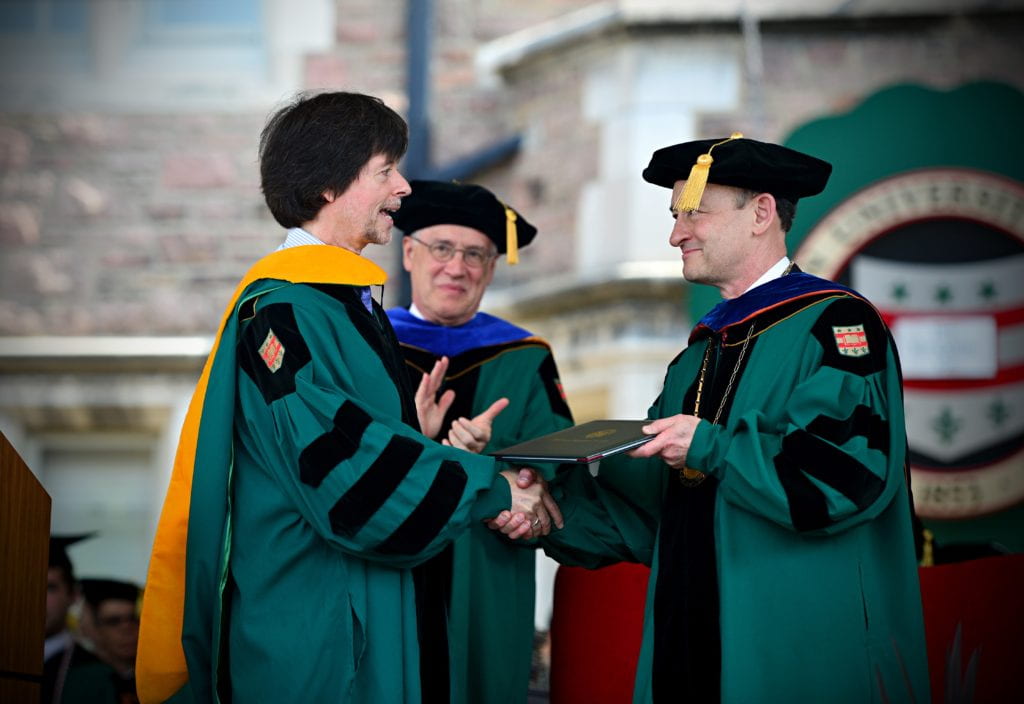Ken Burns has been making films for more than 35 years. Since his Academy Award-nominated Brooklyn Bridge in 1981, Mr. Burns has gone on to direct and produce some of the most acclaimed historical documentaries ever made.

Referred to as “the most accomplished documentary filmmaker of his generation” by The New York Times, Mr. Burns has explored such compelling topics in American history as the Civil War, the Dust Bowl, Prohibition and World War II.
“Burns is not only the greatest documentarian of the day, but also the most influential filmmaker period,” said David Zurawik, PhD, television critic of The Baltimore Sun, in 2009. “That includes feature filmmakers like George Lucas and Steven Spielberg. I say that because Burns not only turned millions of persons onto history with his films, he showed us a new way of looking at our collective past and ourselves.”
A native of Brooklyn, New York, Mr. Burns earned a bachelor’s degree in film studies and design from Hampshire College in Amherst, Massachusetts, in 1975. At the age of 22, he co-founded his production company, Florentine Films, and has been making documentary films ever since.
Mr. Burns’ films are made for and are aired on PBS and incorporate a filmmaking technique credited to him. The technique involves slowly panning from one subject to another or zooming in or out over still photographs, as if making history come alive. It is known as the “Ken Burns effect.”
His documentaries are also known for the use of archival film footage, period music, first-person narration and authentic sound effects. Among his most widely known films are three epic documentaries: The Civil War, Baseball and Jazz.
The Civil War, for which he was the director, producer, co-writer, chief cinematographer, music director and executive producer, was the highest rated series in the history of American public television and attracted an audience of 40 million during its premiere in September 1990.
The series received more than 40 major film and television awards, including two Emmy Awards and two Grammy Awards.
Baseball, which is more than 18 hours long and took four-and-a-half years to make, became the most watched series in PBS history, attracting more than 45 million viewers when it first aired in September 1994.
Jazz, broadcast on PBS in January 2001, is a 19-hour, 10-part film that explores in detail the culture, politics and dreams that gave birth to jazz music, and follows the American art form from its origins in blues and ragtime through swing, bebop and fusion.
Among his many other honors, he has received more than 25 honorary degrees and the Academy of Television Arts & Sciences Lifetime Achievement Award.